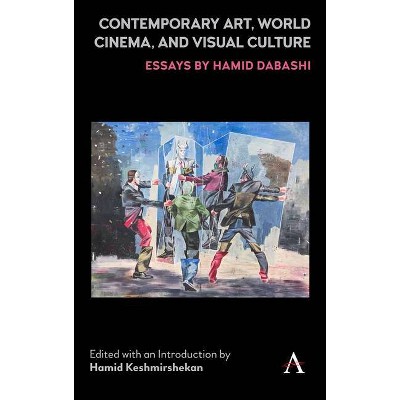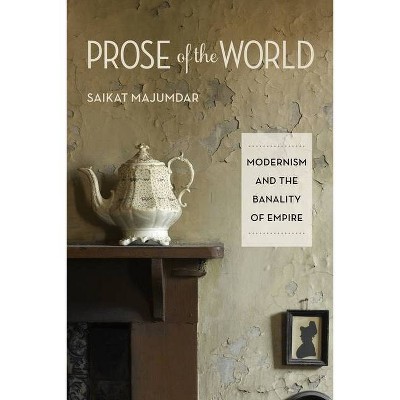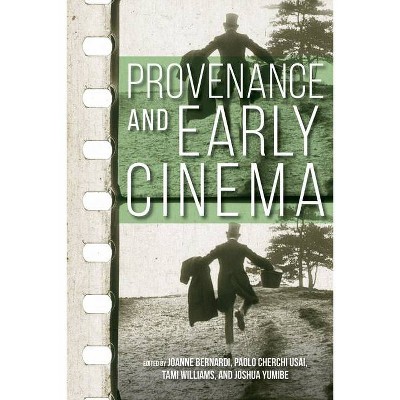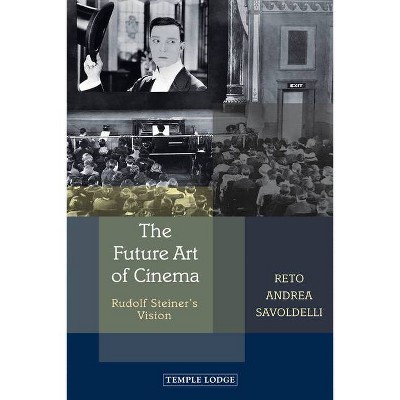Art Cinema and India's Forgotten Futures - by Rochona Majumdar (Paperback)
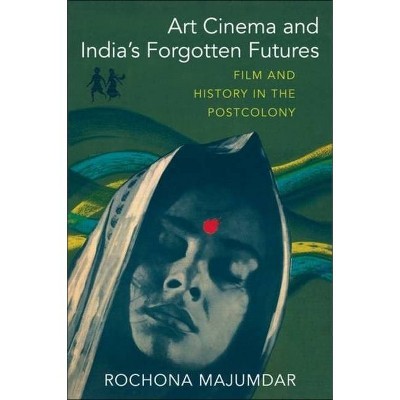
Similar Products
Products of same category from the store
AllProduct info
<p/><br></br><p><b> About the Book </b></p></br></br>Rochona Majumdar examines key works of Indian art cinema to demonstrate how film emerged as a mode of doing history and that, in so doing, it anticipated some of the most influential insights of postcolonial thought. She analyzes the films of Satyajit Ray, Mrinal Sen, and Ritwik Ghatak as well as a host of film society publications.<p/><br></br><p><b> Book Synopsis </b></p></br></br>The project of Indian art cinema began in the years following independence in 1947, at once evoking the global reach of the term "art film" and speaking to the aspirations of the new nation-state. In this pioneering book, Rochona Majumdar examines key works of Indian art cinema to demonstrate how film emerged as a mode of doing history and that, in so doing, it anticipated some of the most influential insights of postcolonial thought. <p/>Majumdar details how filmmakers as well as a host of film societies and publications sought to foster a new cinematic culture for the new nation, fueled by enthusiasm for a future of progress and development. Good films would help make good citizens: art cinema would not only earn global prestige but also shape discerning individuals capable of exercising aesthetic and political judgment. During the 1960s, however, Satyajit Ray, Mrinal Sen, and Ritwik Ghatak--the leading figures of Indian art cinema--became disillusioned with the belief that film was integral to national development. Instead, Majumdar contends, their works captured the unresolvable contradictions of the postcolonial present, which pointed toward possible, yet unrealized futures. <p/>Analyzing the films of Ray, Sen, and Ghatak, and working through previously unexplored archives of film society publications, Majumdar offers a radical reinterpretation of Indian film history. <i>Art Cinema and India's Forgotten Futures</i> offers sweeping new insights into film's relationship with the postcolonial condition and its role in decolonial imaginations of the future.<p/><br></br><p><b> Review Quotes </b></p></br></br><br>History and film criticism are profoundly imbricated in <i>Art Cinema and India's Forgotten Futures.</i> Even as the book uncovers new archives for postcolonial research, it triumphantly validates cultural criticism as historical method. An invaluable scholarly work.--Rajeswari Sunder Rajan, coeditor of <i>Commodities and Culture in the Colonial World</i><br><br>In this engaging book, Majumdar has brought art cinema alive in a carefully contextualized study of Ray, Sen, and Ghatak--three Bengali directors who, she argues, anticipated critical historians. Her writing is evocative, thoughtful and illuminating.--Partha Chatterjee, Professor Emeritus of Anthropology, Columbia University<br><br>The tradition of art cinema in India has rarely been framed with such a rich archival ambition. Displaying an eye for detail and a strong conceptual drive, Majumdar creatively establishes a similarity between the art film maker's capacity for historical reflection and the historian's craft.--Ranjani Mazumdar, author of <i>Bombay Cinema: An Archive of the City</i><br><br>Like the incisive art cinema she unsheathes, Rochona Majumdar probes India in its painful passage beyond partition, staggering into modernity. Cinema has never been more 'critical' than in Bengal from 1960 to 1974 as Satyajit Ray, Ritwik Ghatak, and Mrinal Sen exposed the innards of an immense ailing culture of which the brightness of Bollywood is but a fever symptom. Majumdar, to use her fertile word, <i>apprehends</i> the absolute necessity not just of art films like those she deftly analyses, but of the fragile film society movement that let them breathe. It's an inspiring if tragic history, one she carefully remembers for a future that may still be possible.--Dudley Andrew, Yale University<br><br>How does cinema apprehend its historical moment? With characteristic eloquence and insight, Majumdar gives us a vivid account of India's art cinema and film societies to take the shifting pulse of a nation in the early decades of its independence. In <i>Art Cinema and India's Forgotten Futures</i>, a rigorous interrogation into the category of radical art extends archivally-rich readings of works by Ray, Sen and Ghatak, to ground a powerful vision of films that put the specious terms of India's democracy under scrutiny. This book changes how we will think about histories of, and histories within, art cinema.--Priya Jaikumar, author of <i>Where Histories Reside: India as Filmed Space</i><br><p/><br></br><p><b> About the Author </b></p></br></br>Rochona Majumdar is an associate professor in the Departments of South Asian Languages and Civilizations and Cinema and Media Studies at the University of Chicago. She is the author of <i>Marriage and Modernity: Family Values in Colonial Bengal</i> (2009) and <i>Writing Postcolonial History</i> (2010).
Price History
Price Archive shows prices from various stores, lets you see history and find the cheapest. There is no actual sale on the website. For all support, inquiry and suggestion messagescommunication@pricearchive.us





